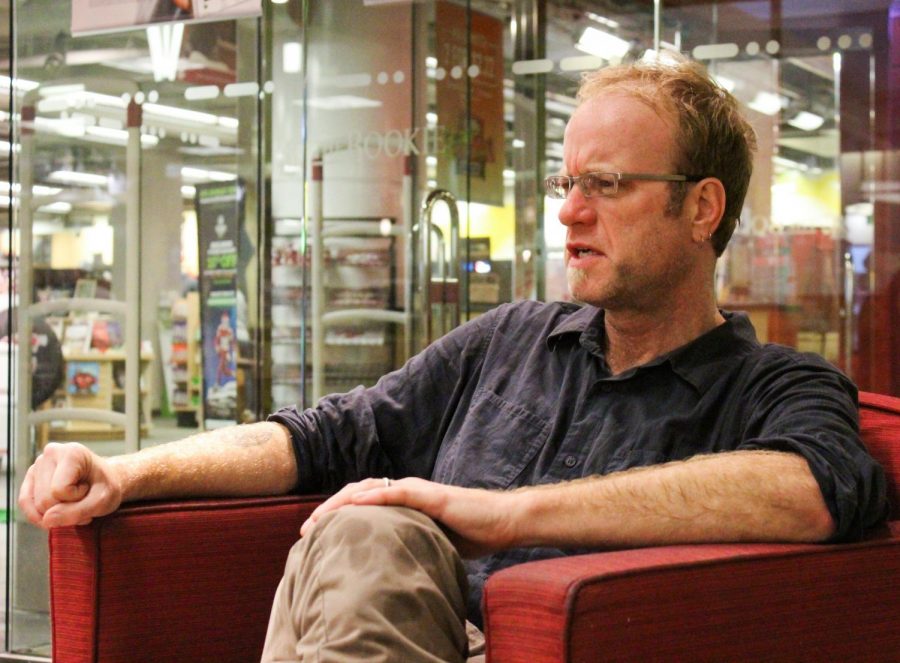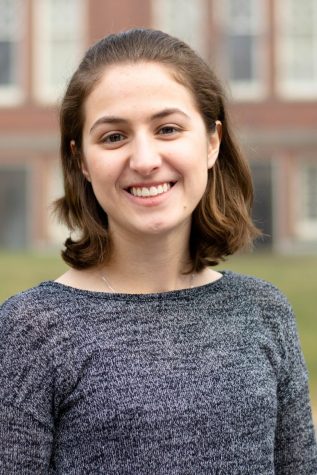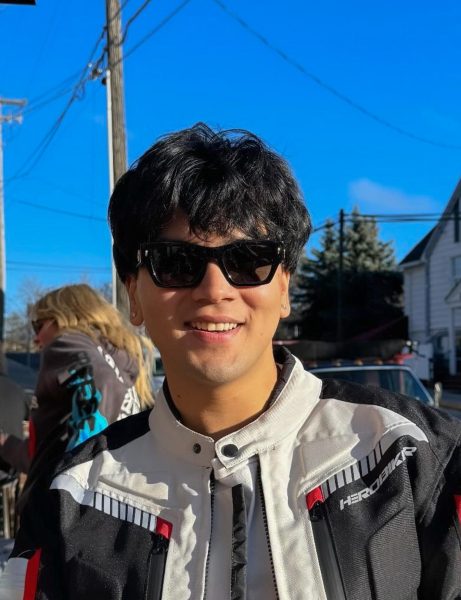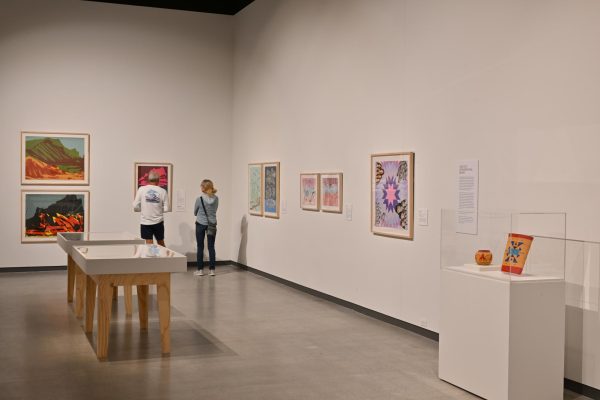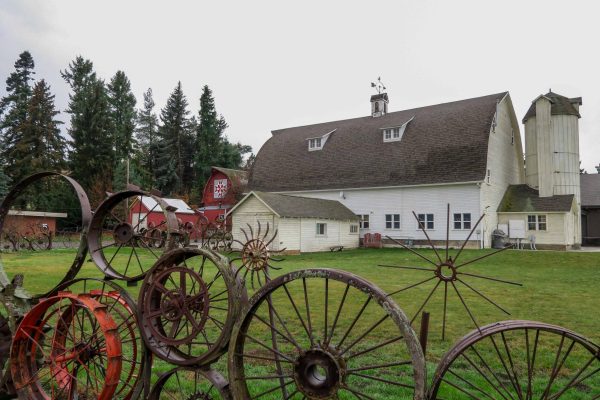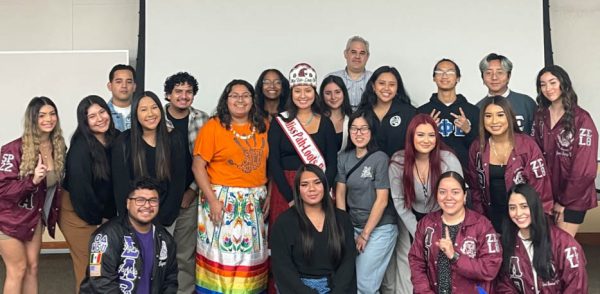Professor uses still images to bring water rights to life
Environmentally aware photographer pulls from travels for inspiration
CAROLYNN CLAREY | THE DAILY EVERGREEN
Associate professor Dennis DeHart discusses his passion for photography and his work with water rights across the globe on Tuesday morning at The Bookie. “[His images] are humbling to look at,” says clinical professor Linda Russo.
October 23, 2019
During his nine years in Pullman, associate professor of photography Dennis DeHart has focused his attention — and the lens of his camera — on the waters of the Snake and Columbia rivers.
DeHart said he considers himself a “lens-based artist” and that he uses his photography to learn about water rights and usage.
“Art is a tool for learning,” DeHart said. “I’ve always liked art to learn about things, hence the river projects are me educating myself about the place we live and the issues that happen here.”
DeHart said the era he grew up in made him very politically and socially engaged, which influenced his photography.
“A lot of my art was actually not really so much about art as about social justice and environmental rights,” DeHart said.
DeHart studied filmmaking at Evergreen State College before going to graduate school for photography at the University of New Mexico. He said living in New Mexico made him very aware of concerns surrounding water.
“Water in New Mexico is a really big deal because there’s not a lot of it,” DeHart said. “Being from the northwest, the west side, we don’t think about water as much because it’s everywhere … we take it for granted, maybe, more so here.”
In 2017, DeHart traveled to 15 countries to capture images of water issues for one of his recent ongoing projects, titled “Confluences.”
“His images draw you in aesthetically and also in terms of a story,” said English professor Debbie Lee, who started working with DeHart in 2013 for one of her projects. “The images have emotion to them even though they’re still.”
Linda Russo, WSU clinical associate professor of English, said DeHart contributed to her project “EcoArts on the Palouse.”
“There’s a grand scale to his work that helps to rescale our relationship to these backspaces,” Russo said. “[His images] are humbling to look at, because they often show the effect you would have on the landscape.”
DeHart said following his passion and pursuing a career in photography was not necessarily the most logical or pragmatic choice for him, but it felt like the right decision.
“I’m not trying to say I’m the happiest person in the world, but I feel fulfilled for the most part,” DeHart said. “I feel satisfied.”


